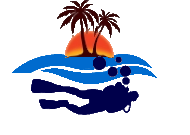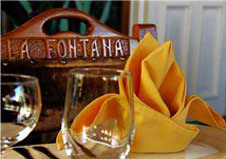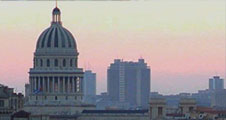First time in Cuba?
Mandatory travel insurance required for travelers to Cuba.
On May 1st, 2010, the Cuban government set new rules regarding Travel Insurance for foreign visitors (also applicable for Cuban citizens residing permanently in other countries). According to this regulation, tourist and visitors must enter the island carrying a document, which proves, they subscribed a travel Insurance covering medical costs.
Any traveller who is not able to produce such a proof before Cuban officials, would be forced to buy an insurance policy from local companies inside the airports or border facilities (ports and marinas). To this purpose, Cuban Receptive agencies (Havanatur, Cubatur, Gaviotatur, etc) will have Insurance Offers available at all airports or entry points. Prices vary from 5.00 to 20.00 CUC per day, depending on the coverage. The official Insurance Company for tourists in Cuba is Asistur S.A. (for more details visit www.asistur.cu).
Currency.
In Cuba, there are two official currencies:
The Cuban Peso (CUP), only useful for citizens when they pay standard bills like electricity, gas, phone services, and food at local markets.
The Cuban Convertible Peso (CUC), valid to pay in hotels, restaurants, cafeterias, museums, tourist spots and all the places tourists are supposed to visit.
- If possible, do not bring US currency to be trade into CUC (Cuban convertible Pesos). The US dollars are over taxed by all banks, when exchanging them into local currency.
It is preferable to bring Euros, Canadian Dollars or Great Britain Pounds.
- While in Cuba, you will need some cash to pay for a taxi, buy an excursion, have dinner at a restaurant, etc. And though the official currency is the Cuban Peso (the one Cubans are paid their salaries with) all the prior mentioned services would be charged in CUC (Cuban Convertible Pesos). This is the kind of cash you will need, mostly 1, 5, 10, 20&CUC bills.
- The only use Cuban Pesos (Not convertible) have, is to buy vegetables and fruits at a local agricultural markets. And even there, you can use CUC.
- The equivalence between the two pesos is approximately: 1 CUC = 23 CUP. For instance, if you buy a banana at a local agricultural market, you will be charged around 1 Peso. So, if you pay with a 1 CUC (convertible peso) bill, they will give you 22 Pesos as a change.
Credit cards.
Most of credit cards are accepted in hotels, Car Rental Offices, some restaurants and local travel agencies in Cuba. As long as they are not issued by American banks, you can use them for paying services or extract cash in banks and ATM machines.
- An average charge of 3 to 4 % of the paid or extracted amount will be applied.
- The total charge for credit cards operations involving US dollars is about 11 %.
- While renting a car, the security (refundable) deposit can be processed with a credit card.
- Never give your credit card to other person than the official employee assisting you, or the sales person at the office where you are booking the services.
Safety.
In general sense, Cuba is a lot safer than most of its neighbour Caribbean islands. Nevertheless, Havana is a two million inhabitants city and like any other big town, some bad guys can appear on scene from time to time. Nothing like organized crime, or drug dealing organizations, because they don´t really exist in Cuba. But a minor thieves show up occasionally at the hotel's surrounding areas, so:
- You shouldn't carry jewellery with you, or cameras, or lot of cash, if you are walking along specially at night. The tourist areas like Vedado, Miramar and Colonial Havana, for instance, are heavily patrolled 24-7, so you shouldn´t have a problem there.
- Try to book excursions and tours through the official net of offices established in all cities and towns, like Havanatur, Cubatur, Gaviota Tours, Cubanacan Viajes, or Paradiso. They are completely secure. Free lances offering their services as tour guides, in turn, might become dangerous and no claims are possible if something goes wrong with them. Additionally, they are mostly illegal.
- If you are planning to rent a room at a private house (CASA PARTICULAR), make sure you go to a licensed one. Licensed private houses offering accommodation have legal permits and a registration book, where you and your companions must be registered ( your passports numbers will be required by owners, to write down your data in the book). It is safe to stay with a Cuban family at its place, as far as they have the proper license issued by the gov.
Communications, Internet and cell phones.
Communications in Cuba can be expensive, especially when making international calls. Internet is available in most hotels, but rates are usually around 5 CUC per hour. Wifi connections have been set up in most hotels, in all provinces, but dont expect to get high speed connectivity in any modality. If you need to get online just to check emails and send messages, your smartphone, tablet or laptop will work OK.
There are also some cybercafés, where you can pay for internet access, buying a card for the same rates. Skype and other Internet based audio communication systems might work while you are connected, but quality is very low due to a narrow band in every line.
Cell phones can be rented at the only local provider named Cubacel. Cell to cell, or cell to fixed line phones, have a rate of 0,35 CUC per minute (0,40 USD), either calling or receiving. International incoming calls are free, but outbound calls are charged with higher rates (from 1.80 CUC per minute to the US). Canada or Central America, is about 1.60 CUC per minute. 1 CUC = 1,15 USD.
If you bring your own cell phone, roaming service can be installed at Cubacel Offices. This would be very helpful to make international calls, for you would be paying the rates you pay in your own country, plus a little extra. But never use the roaming to call a local number, this could become really expensive since your signal will travel all the way to your country and back to the island.
Flights.
- Keep always in mind that when leaving the country, you must pay an airport tax of 25.00 CUC.
- Local flights are run by three different carriers: Cubana, AeroCaribbean and AeroGaviota. If you can choose between them, we suggest Aerogaviota in first place and in second, Aerocaribbean. They have more modern and secure planes, like the French made AT42.
- Never arrange your connecting flights in Cuba with little time to catch the second plane. Air Schedules are not always reliable, and to have a landing delay is not an unusual event, so the risk of losing your flight in that scenario, is high.
- Have your luggage always properly wrapped, and marked with your personal data. If known, write your hotel address and phone number in it. That would facilitate things in case it gets temporarily lost.
- Do not bring any sophisticated communication system, based on radio signals transmission. This might get you stocked for hours in Customs, as the equipment has to be revised by experts and technicians before receiving a clearance.
Cuban Tobacco.
- Never buy Cuban Cigars in other place than the official shops, factories or sales points. They are the only entities authorized by law to sell the product. And it is mandatory that every Cigar Box has the proper seal and corresponding invoice, to be shown before customs officers when you are leaving the country.
- Though you might find persons in the streets offering you, what appears to be legit Cuban cigars, they could easily be fake. Forgeries are very well done in these cases, and fake Cuban cigars look like the original ones. Boxes might have even the legit seal, but if caught with the illegal product at any airport, you will be fined and subject to investigation.
Climate in Cuba.
The Cuba climate is mild subtropical, thanks to its proximity to the Tropic of Cancer, its narrow configuration, east to west oriented receives the refreshing action of trade winds and marine breezes. During the short winter are influences of cold air masses coming from the North, but they are of short duration. The average temperature throughout the year oscillates between the 20 and 35ºC, lowering sometimes to 10°C. The Eastern region enjoys a warmer weather than the western and the variations of temperature between the day and the night are less accentuated in the coastal regions that in inland.
Those that enjoy the beach will be glad to know that the average water temperature surpasses 25°C. By its geographic situation, the country is affected between June 1st and 30th November by the cyclone season. They can affect the island in hurricane form with winds that goes up to 200 km/h and heavy storms. A serious hurricane does not come every year by any means. All the hotels have modern structure or are rehabilitated and protected to receive the phenomenon.
North-East trade winds temper the heat, but summer shade temperatures can rise to 33°C (Havana), and higher elsewhere. In winter, day temperatures drop to 20°C and there are a few cold days.
- The average annual temperature is about 77 degrees Fahrenheit or 25 degrees Celsius. During the summer season extremes of heat average 81 degrees Fahrenheit or 27.2 degrees Celsius and relative humidity average 80%.
- The average temperature in winter is about 70 degrees Fahrenheit or 21 degrees Celsius.
- Annual rainfall averages about 1320 mm (about 52 in.) More than 60% of the rain falls during the wet season, which extends from May to October.
- The island lies in a region occasionally traversed by violent tropical hurricanes during August, September, and October
Services quality, accommodation and meals standards in Cuba.
First of all, a traveler should be aware of a simple fact when traveling to Cuba: This is a third world country, struggling through an economic embargo declared by the US government, and organized as a society under the communism rules. As a result of these facts, you might find that the generally and worldwide accepted patterns to judge quality won’t work in the island. Even the 5 stars hotels ran by prestigious international chains, would have some problems to keep the same standards they have in other nearby destinations like Punta Cana, Cancun or Montego Bay. This doesn’t mean there is not quality at all, it is just a matter of comparison, so you should be prepared to find services lacking that extra considered a standard in some neighbour islands. But then, this is the reason for Cuba to have lower sale prices within the hot spots in the Caribbean.
Generally, the best quality of services is found at 5 stars hotels ran by international chains like Melia, RIU, Sandals, Iberostar, Barcelo and others. There is also a difference between tourist areas all along Cuba. While the services’ infrastructure is more developed in cities like Havana, Varadero, or even Cienfuegos, Trinidad and Santiago de Cuba, there is a poor procurement and certain shortage of supply for the industry components in places like Camaguey, Santa Clara or Pinar del Rio. If you stay in big cities, we suggest you get some advice provided by professional specialists or travel agents. Through them, you can find the right places for higher services’ standards. There are top quality restaurants, great night clubs and cabarets, good quality hotels and exciting excursions to historic places or amazing nature spots available in the most populated Cuban towns or Beach poles.
The good news is that despite these downsides of the equation, on the other side you will find a friendly population, a cultural heritage unmatched by many of the island neighbours, a unique religions’ mix, a rich history covering 5 centuries of battles, a music and dance resulting from the melting of several cultures and a nature with no equal in the region, combining the best beaches imaginable, mountain ranges and historic towns all along the way. We certainly think that the final balance is really positive, and the experience of visiting the island of Cuba is worth trying. So we hope to receive you soon in this Caribbean unique place. Just let us know when and we will prepare a great trip for you.























